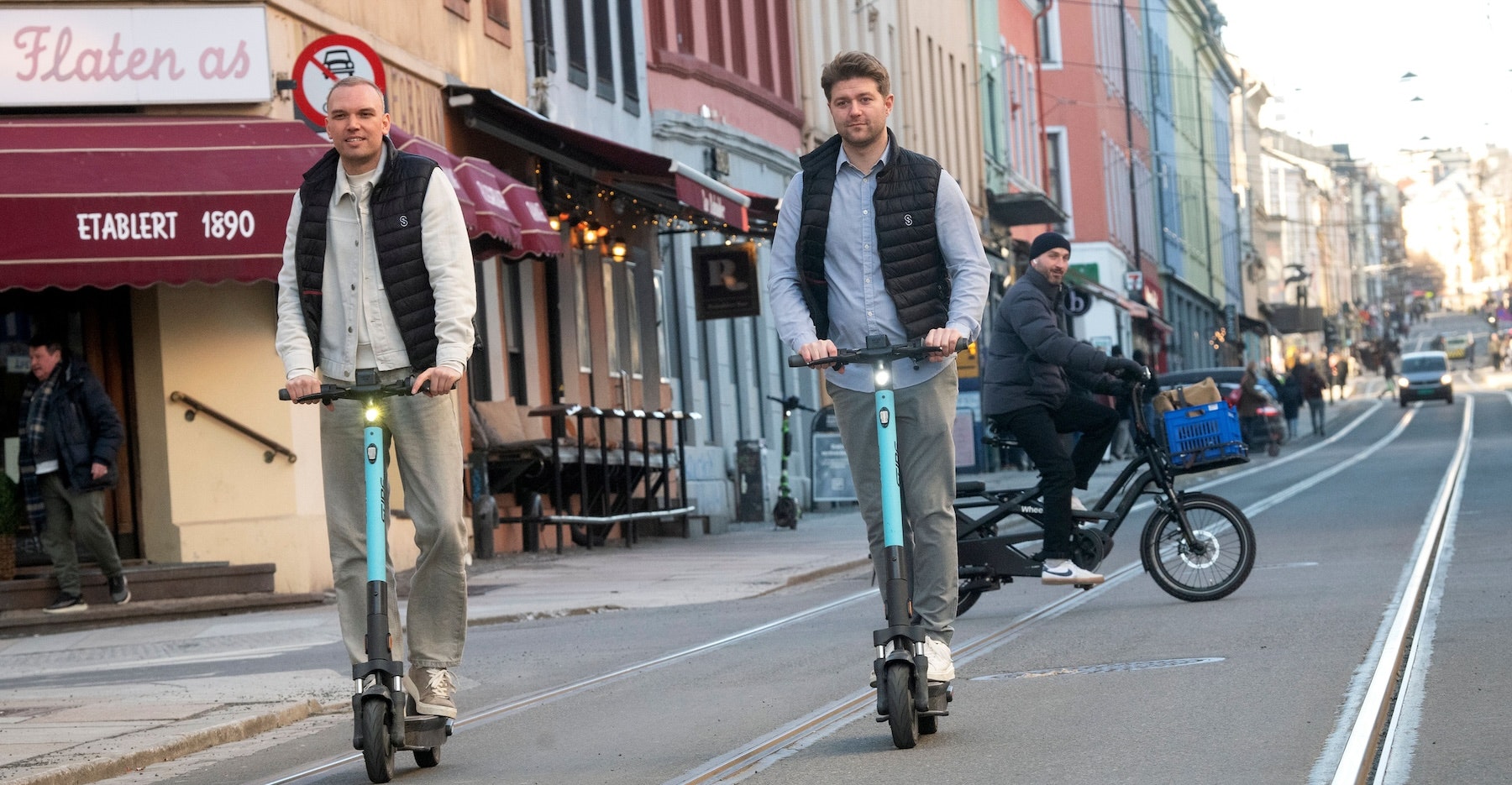Norway’s Surf Beyond scooter startup acquires bankrupt competitor

Following the proposed merger of scooter startups Dott and Tier and the bankruptcy of American operator Bird last year, competition among European micromobility players seemed to have died down.
But a new actor is eyeing Europe.
Norwegian startup Surf Beyond has acquired bankrupt US-based scooter startup Superpedestrian’s European business for around €5m.
It’s hoping to use Superpedestrian’s tech capabilities and staff to grow in Europe.
25k scooters and tech for about €5m
Surf Beyond, which was founded in 2021, started in one city with 1,000 (turquoise) scooters. It has since then launched in 10 smaller cities in Norway and has 5,000 scooters — aided by acquiring Norwegian competitor Zvipp last year.
To supercharge its growth, it’s acquired a much larger player — Superpedestrian, which has operations in Portugal, Spain, France, the UK, Italy, Switzerland, Austria and Germany.
In 2021, during the days of scooter hype, Superpedestrian raised a $125m Series C from investors including General Catalyst. But in December last year, the company filed for bankruptcy and began looking for a buyer for its European business.
The deal included 25k electric scooters in Europe and cost Surf Beyond around €5m, according to Norwegian local media Finansavisen. That figure has been confirmed to Sifted by a person close to the company.
The deal also includes Superpedestrian’s tech.
Superpedestrian was spun out of Massachusetts Institute of Technology (MIT) and its founder, Assaf Biderman, spent 10 years working at MIT’s Senseable City Lab. Its e-scooters have tech features like a vehicle intelligence operating system that runs vehicle health checks before every ride, and can detect and correct unsafe rider behaviour in real time. They can also geofence — stop scooters going into certain areas — in just 0.7 seconds, with a 99% enforcement success rate.
“The technology of Superpedestrian is unique in this space, and that was a big part of why we decided to acquire it,” says Surf Beyond cofounder Julian Alexander Hahn.
Surf has lost tenders in Oslo, Bergen and Stavanger but won tenders in smaller cities — and is hoping Superpedestrian’s tech will help give it an edge in future. Perhaps the tech transfer with the acquisition of Superpedestrian, will be to an advantage for the Norwegian startup.
Surf Beyond’s Norwegian investor Songa Investments helped finance the deal in exchange for a 22% stake in the company, with Hahn and his cofounder Mats André Breesth owning 12% and 6% of the shares respectively, according to Finansavisen.
Not just a scooter startup
Surf Beyond has also picked up around 40-50 of Superpedestrian’s European employees, meaning its headcount will more than double to around 100.
“We managed to hire 80% of the key staff of Superpedestrian. They have shown to really know how to run a great business across the cities where Superpedestrian had bikes and they will continue running the businesses locally,” Hahn says.
He believes that Surf Beyond will be able to compete with established players in its new markets since Superpedestrian is a loved brand by users.
“We already compete with the large scooter startups on a local level — Voi may be the best choice in Stockholm, while we could be the best in Gothenburg. This is very much a business built on a city-to-city basis,” he says.
Money matters
While other micromobility companies have had a couple of challenging years with difficulties reaching profitability and dwindling valuations, Hahn believes Surf Beyond can become a sustainable business.
“It obviously takes some cash to manage it but we have a product the users love and to become a profitable business, we also plan for other side businesses,” he says.
So far Surf Beyond has soft launched a telecommunications product — a mobile subscription called Surf Mobil which offers free minutes to use on Surf Beyond’s scooters. There are also other products in the pipeline, says Hahn.
Lars Christian Grødem-Olsen, former country manager for Tier and now managing director at Norwegian mobility consultancy Movability, thinks it won’t be a smooth ride.
“Cultural fit in post-merger integration is a challenge a lot of companies underestimate. It’s no simple feat, and Surf and Superpedestrian are two different companies identity-wise,” Grødem-Olsen says.
He thinks it will be hard to integrate Superpedestrian — a hardware and tech-focused business — with Surf, which is predominantly focused on marketing activities.
“A burning question is if they have received more investment money to pay for the integration and make the markets fully profitable over time,” says Grødem-Olsen. “ They will need substantial means to make this integration work.”
Related
European markets fall and euro soars amid Trump tariff delays
European stock markets have slumped after Donald Trump’s second reversal on tariffs caused deep uncertainty among investors, while the euro was on track for i
European Central Bank cuts interest rates, keeps door ajar to…
Open this photo in gallery:The European Central Bank headquarters, in Frankfurt, Germany, on June 6, 2024.Wolfgang Rattay/ReutersThe European Central Bank cut i
European security, economy without Türkiye ‘impossible,’ says business leader –…
ISTANBUL Türkiye’s strategic importance for Europe's future is both undeniable and multifaceted, encompassing critical areas suc
Westcon-Comstor promotes Rene Klein to lead unified European business
Westcon-Comstor has announced the appointment of Rene Klein as executive vice president for EMEA, tasked with leading the company’s new unified leadership st











